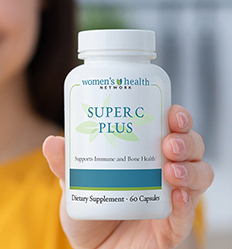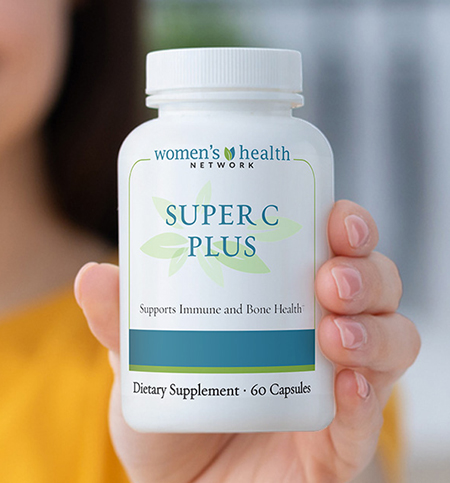By Dr. Amber Hayden, DO
If you think you’re at risk for chronic inflammation and its awful consequences, you’ll be glad to know that creating an anti-inflammatory lifestyle is easier than you may realize. These simple steps will help you reduce existing inflammation and prevent it from becoming chronic.

1. Brush and floss your teeth regularly: If you’re like me, you know dental health is important but don’t always prioritize it. But brushing and flossing your teeth at least once daily are two of the simplest and quickest ways to fight harmful inflammation.
The inflammation related to periodontal disease has been linked to chronic inflammation as well as subsequent heart disease and Alzheimer’s, so visiting your dentist on a regular basis is also a good idea.
What’s a good anti-inflammatory diet?
A Mediterranean-style diet is our recommended choice. It’s made up of whole grains, fish, healthy fat and oils, fruits and vegetables and is the basis for the Eating Guides and Meal Plans in all of our Health Programs. Plus a Mediterranean diet is delicious and can be easy to prepare.
2. Fight inflammation with real food: You have a lot of delicious menu options when it comes to reducing inflammation. Choosing the right foods can help your body by blocking certain stages in the inflammatory cascade or by removing toxic by-products.
The best inflammation fighting foods are rich in antioxidants. Antioxidants are so effective because they bind to and deactivate harmful “oxygen free radicals” that are by-products of the inflammatory process. This stops oxidative damage right in its tracks.
Some of my favorite anti-inflammatory foods include:
- dark berries (including blueberries and blackberries)
- red wine (in moderation — a glass a day)
- spinach
- dark chocolate (a square or two a day, and be sure it’s not processed with alkali because this greatly reduces the major antioxidant flavanol)
Another personal favorite are beets, which contain betaine, a powerful antioxidant that can block the formation of several inflammatory markers. Beets can be enjoyed in so many ways — in salads, smoothies, juices or even roasted with a little balsamic glaze.
Finally, omega-3 polyunsaturated fatty acids like EPA and DHA found in fatty-fish oil can play a big protective role by acting directly on signal pathways during inflammation.

3. Try turmeric – the anti-inflammatory spice. Some specific ingredients are in the spotlight recently as mega-inflammatory fighters. The spice turmeric, for example, has gained serious credibility in reducing inflammation related to Alzheimer’s disease, arthritis and cancer.
Turmeric contains curcumin, which extinguishes inflammation by shutting off pro-inflammatory markers and reducing free radicals. Turmeric can be consumed in food, as a tea, in capsules or in a solution.
My favorite way to add turmeric to my daily routine is as a delicious elixir. I drink it in the morning, and it’s good warm or cold. Check out my recipe below.
Turmeric Elixir
- 2 teaspoons organic dried turmeric (or fresh turmeric if it’s available)
- 1 tablespoon grated fresh ginger
- 1-2 tablespoons lemon rind (from unwaxed organic lemon)
- ½-1 cup fresh squeezed lemon juice (depending on desired taste)
- 2 cups water (or coconut water if you want it sweeter)
- 1-2 tablespoons raw organic honey to taste (you can use organic maple syrup as an alternative).
Blend all these ingredients into a bright orange solution. Store in the refrigerator.
4. Cut out the chemicals: Exposure to pesticides and preservatives causes inflammation by invading cells and destroying tissue. Our gut flora, which acts as another sort of immune system is also greatly affected by these chemicals. Repeated exposure kills off this crucial line of defense, leading to further tissue death and inflammation.
Be especially careful with cleaning products. There are many natural options that are effective and much less toxic to you and your family. Read labels carefully when it comes to cosmetics, shampoo, toothpaste and other personal care products. Avoid phthalates and parabens whenever possible.
You can also reduce your chemical exposure with better food choices. Try to eat seasonal, local and, especially, organic as often as you can, and wash your vegetables well when you can’t. Stick to homemade food instead of highly processed foods that come in plastic containers.
5. Enjoy being active: Regular exercise reduces inflammation very effectively by improving circulation and lymphatic flow, and reducing body fat. You can do any type of exercise as long as it gets your heart pumping. Set a goal to work out for at least 30 minutes, 5 days a week and work up to it bit by bit.
Keeping a healthy weight is so important to put inflammation in its place. When the body is under metabolic stress, as it is with obesity, fat cells can help initiate an inflammatory reaction. This happens because fat cells can act like immune cells by releasing cytokines, which push immune cells to initiate an inflammatory reaction.
6. Make sleep a true priority: If I had to choose one good thing to tell my patients to do for themselves, it’s to prioritize developing a sleep schedule, and then follow it closely. Sleep is the time when your body is able to heal from the physical and emotional traumas of the day. Interrupted, poor quality sleep cuts sharply into that healing time.
It’s tempting to stay up to work or catch up on social media. Be good to yourself and go to bed at a reasonable hour, and keep the room cool, dark and comfortable. Remove the television and phone from the bedroom, and allow yourself time to settle down and just be still. If you have trouble sleeping, consider supplementing with melatonin, a natural sleep hormone that helps maintain a healthy circadian rhythm.
7. Adjust your response to stress: Inflammation is also triggered in response to stress and anxiety. As the body interprets these emotions as internal invaders no matter what their cause, it releases inflammatory markers everywhere throughout the body to head off impending danger.
The more stress in your life, the more likely it is you’re headed towards an inflamed state. Consider starting a meditation program or try journaling every night — both help release stress. The options for stress reduction are endless, so if the first one you try doesn’t seem right for you, move on to others until you find the one that does.
Remember, you don’t have to make all of these changes at once. Pick one to get started and once it becomes part of your routine, choose another to add. In today’s world, it’s essential that we all try to create an anti-inflammatory lifestyle to feel better now and protect ourselves in the long run.
Teiten M, Eifes S, Dicato M and Diederich M. “Curcumin—The Paradigm of a Multi-Target Natural Compound with Applications in Cancer Prevention and Treatment.” Toxis. 2010 Jan; 2(1): 128-162
Saita E, Kondo K, Momiyam Y “Anti-inflammatory Diet for Atherosclerosis and Coronary Artery Disease: Antioxidant Foods.” Clinical Med Insights Cardiolo. 2015 Jul 6; 8 (Supple3): 61-5
Schenkein HA, Loos BG “Inflammatory Mechanism Linking Periodontal Diseases to Cardiovascular Diseases” J Clin Periodontal PMC 2015 Aug 21 40(0 14) S51-S69
Miller et al. Impact of alkalization on the antioxidant and flavanol content of commercial cocoa powders. J Agric Food Chem 56:8527-33 (2008)
Egger G “In Search of a Germ Theory Equivalent for Chronic Disease” Prev Chronic Disease 2012; 9
Salim S, Chugh G, Ashgar M “Inflammation in Anxiety,” Adv Protein Chem Struct Bio 2012; 88:1-25
Inflammation and Heart Disease”, American Heart Association. Updated April 18, 2016. https://www.heart.org/HEARTORG/Conditions/Inflammation-and-Heart-Disease_UCM_432150_Article.jsp#.V9M0nEIdJFI












